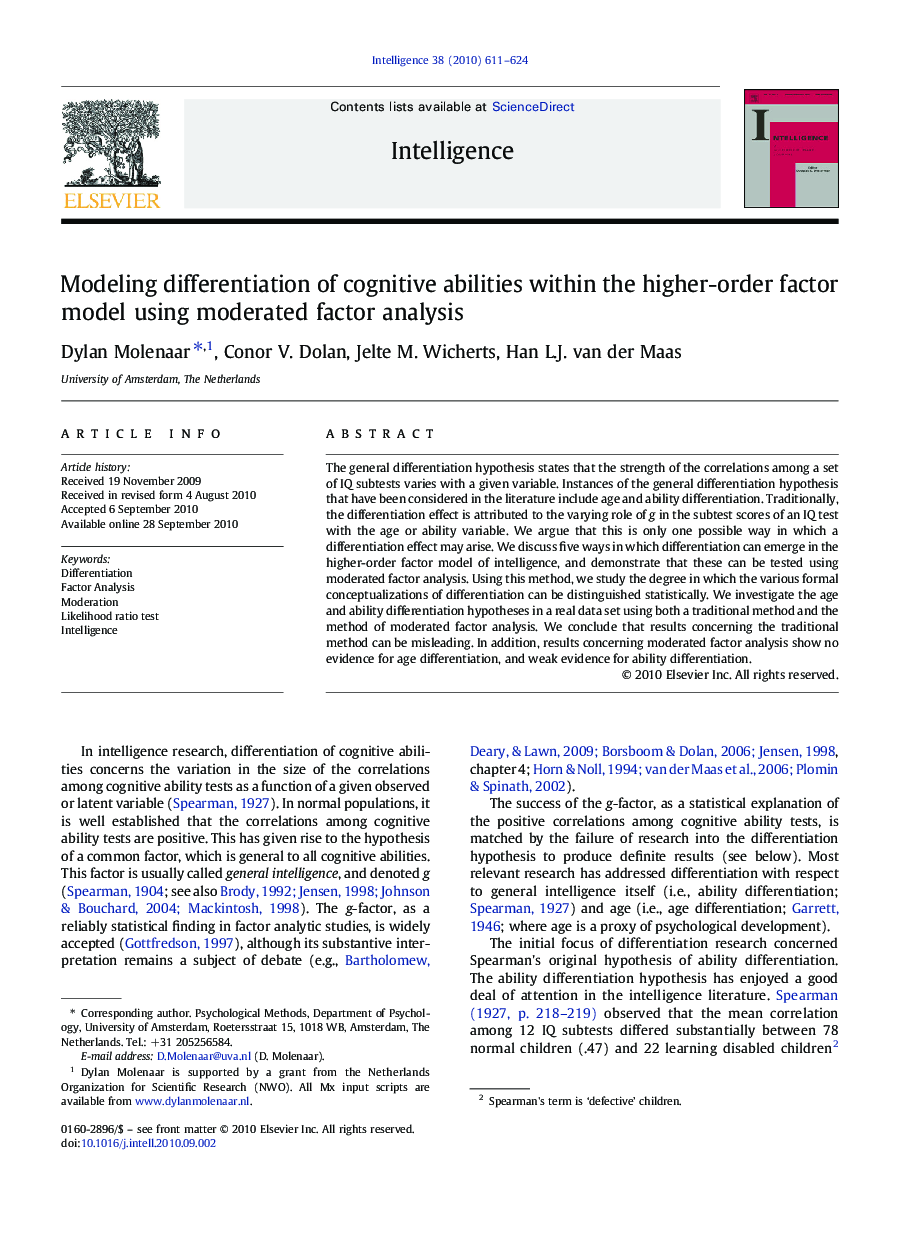| Article ID | Journal | Published Year | Pages | File Type |
|---|---|---|---|---|
| 929348 | Intelligence | 2010 | 14 Pages |
The general differentiation hypothesis states that the strength of the correlations among a set of IQ subtests varies with a given variable. Instances of the general differentiation hypothesis that have been considered in the literature include age and ability differentiation. Traditionally, the differentiation effect is attributed to the varying role of g in the subtest scores of an IQ test with the age or ability variable. We argue that this is only one possible way in which a differentiation effect may arise. We discuss five ways in which differentiation can emerge in the higher-order factor model of intelligence, and demonstrate that these can be tested using moderated factor analysis. Using this method, we study the degree in which the various formal conceptualizations of differentiation can be distinguished statistically. We investigate the age and ability differentiation hypotheses in a real data set using both a traditional method and the method of moderated factor analysis. We conclude that results concerning the traditional method can be misleading. In addition, results concerning moderated factor analysis show no evidence for age differentiation, and weak evidence for ability differentiation.
